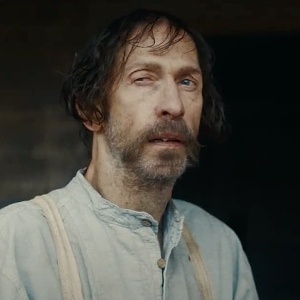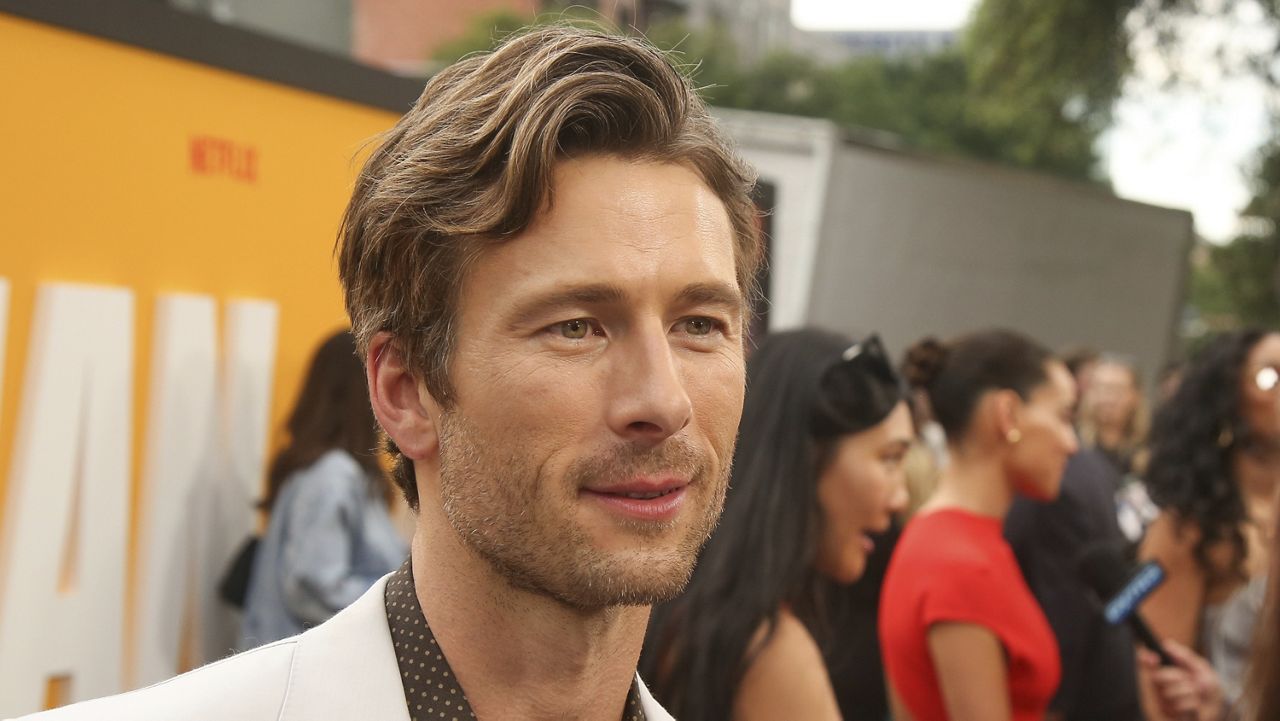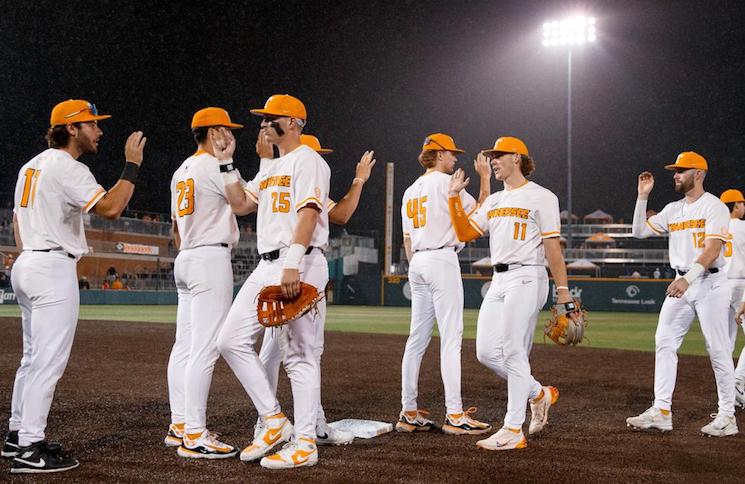Movie Reviews
Movie Review: ‘Gran Turismo’ movie drifts into cliches and video game aesthetics

In 2006, a Nissan marketing executive had a truly insane idea to create a competition and an “academy” to turn gamers into race car drivers. Darren Cox saw an untapped market of potential car-buyers in Gran Turismo enthusiasts – the popular PlayStation racing simulator that first came on the market in 1997. And in the third year of the “GT Academy,” an actual star emerged in a 19-year-old British kid named Jann Mardenborough, who would go on to become a professional driver, just like he dreamed.
It’s a fine and lucrative idea for a movie — an inspirational underdog story in which brands like Nissan and PlayStation, a Sony company which also owns the studio behind the movie, can take partial credit for and help underwrite. And it couldn’t come at a better time, when F1 is exploding in popularity in the United States thanks in part to the Netflix series “Drive to Survive.” But “Gran Turismo” has taken this opportunity and made the cliché version in this year of movies like “Barbie” and “Air,” which showed audiences that “brand” movies don’t have to be basic. They can be fresh, vibrant, funny and entertaining – even when literally focused on the corporate schlubs just trying to earn their keep.
If you don’t know ins and outs of Mardenborough’s story, it’s best not to study up before “Gran Turismo.” The movie, which has gone through several writers and directors over the years it’s been in development, takes immense liberties with its true story and cherry picks things from various points in Mardenborough’s career to make his debut year as dramatic as possible. The version coming to theaters is credited to screenwriters Jason Hall and Zach Baylin and director Neill Blomkamp (“District 9,” “Chappie”), who likes to amp up the excitement of a car going 200 miles an hour with lots of cuts and close-ups and aerial shots that would surely drive the down-and-out veteran enlisted to train these amateurs absolutely insane.
That veteran, named Jack Salter, is played by David Harbour, who is quite enjoyable in a pretty cliché “tough love mentor with a past” role. He brings life and energy and an amusing voice of reason to this unbelievable story which can’t seem to choose a lane.
The first hour leans heavily into the brand mythologizing as it sets everything up and it is dreadful. It’s almost in spite of everything that the second half, which focuses on the actual racing, is more successful. How could it not be? It’s a very pleasing underdog makes good journey, with a very pleasant and empathetic lead actor in Archie Madekwe. His parents, played by Djimon Hounsou and former Spice Girl Geri Halliwell-Horner, are also appealing, if underused and trotted out only for maximum emotional impact. We could have used a little more of the Mardenborough clan and a little less of Jann’s love interest, Audrey (Maeve Courtier-Lilley) who is introduced to another peripheral female character in a 5-second scene that is so out of nowhere and random that I wondered if it was only there so that the very male film could technically pass the Bechdel Test.
Poor Orlando Bloom gets a little lost in everything as the high-anxiety Nissan marketing executive Danny Moore, who is frustratingly underdrawn and who the movie goes through great pains to avoid making the enemy. That goes to the cocky, model-y young driver who is there to represent the big money side of European racing, in his gold car branded by Moët & Chandon. Instead, Bloom is kind of just a tour guide to the high life, uttering lines like “ever been on a private jet before?” to the kid from Cardiff. But most egregious is the depiction of the Japanese Nissan executives, who are essentially nameless, characterless background actors in suits called on to either nod or look vaguely confused as Danny tries to reassure them that these amateur drivers won’t die.
The movie on the page wants to romanticize the simple pleasures of race car driving outside of the glitz and glamour of the high-rolling industry, and has been directed by someone who doesn’t actually believe that the driving is enough and that it does need all the trimmings of a “Fast and Furious” spinoff to make it exciting to an audience. It’s the MTV cut of Winona Ryder’s documentary from “Reality Bites,” the one the slick marketing guy would make. And I think therein lies the essential incongruity of what amounts to a moderately entertaining, very long Super Bowl spot quality commercial for PlayStation and Nissan.
“Gran Turismo,” a Sony Pictures release opens in limited release on Aug. 11, and expands on Aug. 25, is rated PG-13 by the Motion Picture Association for “intense action and some strong language.” Running time: 135 minutes. Two stars out of four.
—-
MPA Definition of PG-13: Parents strongly cautioned. Some material may be inappropriate for children under 13.

Movie Reviews
‘Rumours’ Review: Cate Blanchett and Alicia Vikander Play Clueless World Leaders in Guy Maddin’s Very Funny, Truly Silly Dark Comedy

World leaders at a G7 conference politely bicker, copulate in the bushes and work on wafty, content-free speeches while a worldwide apocalypse commences — politicians, they’re just like us! — in collaborating Canadian directors Guy Maddin, Evan Johnson and Galen Johnson’s frequently hilarious latest feature.
Although they’ve kept busy with a steady stream of shorts, the trio haven’t made a feature with actors since the fantastical The Forbidden Room from 2015. With a proper beginning, middle and end, and barely any tributes to silent cinema or interactive tricksiness, Rumours may arguably be Maddin’s most conventional film ever, or at least since The Saddest Music in the World (2003). That is, if you can call a film conventional that’s got furiously masturbating bog zombies, a giant brain the size of a hatchback, and an AI chatbot that catfishes pedophiles. All the same, it’s a hoot, even if the energy flags in the middle.
Rumours
The Bottom Line The last laugh before it all burns down.
Venue: Cannes Film Festival (Special Screening)
Cast: Cate Blanchett, Roy Dupuis, Denis Monochet, Charles Dance, Nikki Amuka-Bird, Rolando Ravello, Takehiro Hira, Alicia Vikander
Directors: Guy Maddin, Evan Johnson, Galen Johnson
Screenwriter: Evan Johnson, based on a story by Guy Maddin, Evan Johnson and Galen Johnson
1 hours 58 minutes
For those who like to keep score on these sort of things, this is also the first film directed by Maddin, let alone brothers Evan and Galen Johnson, that’s been programmed in Cannes’ official selection. Apart from the fact that it’s a welcome rib-tickler that breaks up this year’s festival’s monotonous procession of poverty porn and disappointments by fading auteurs, Rumours’ path to the Croisette was almost certainly smoothed by the presence of major names in the cast including Cate Blanchett, Alicia Vikander, Charles Dance and French star Denis Ménochet (Beau Is Afraid, Peter von Kant). That cast and the festival showcase won’t do any harm to the film’s commercial prospects. Bleecker Street recently announced they’ve acquired the rights for U.S. distribution.
The satire here isn’t necessarily aimed at any specific politician given that the characters are all clearly living in a fictional world, one where ideology barely seems to matter. Nevertheless, there’s a distinct sharpness in the way the script, credited to Evan Johnson but based on a story by all three directors, pokes the bears. Pointedly it lampoons the airy, non-committal language of world summits, the promises that mean nothing, and the outcomes that achieve little in a world that, while admittedly always in crisis, really is on the verge of burning up thanks to climate change.
The film’s most consistent running joke — worked so hard it goes from guffaw-inducing to stale to weirdly suddenly hilarious again, as if through attrition — concerns how seriously the seven world leaders take the process of drafting a joint statement full of platitudes, corporate-speak, psychobabble and song lyrics as they sit in a little woodland gazebo. So absorbed are they in their work, broken up into subgroups like high-schoolers assigned a class project, that they don’t even notice that their aides and servers have all mysteriously disappeared, leaving them alone in the woods.
In other ways, the leaders resemble middle-managers enjoying their annual conference with its catering, photo opportunities and time off from troublesome spouses — a particular concern for Canada’s prime minister Maxime Laplace (The Forbidden Room’s Roy Dupuis, rocking a man bun with an undercut like an aging pop star). Broad hints are dropped that Maxime had a fling with the United Kingdom’s otherwise goal-directed prime minister Cardosa Dewindt (Nikki Amuka-Bird). This year he’s caught the thirsty eye of host-country Germany’s elegant Chancellor Hilda Ortmann (Blanchett, showing off strong comedy chops, even in the way she Germanicizes her vowel sounds).
The United States’ President Edison Wolcott (Charles Dance, slyly self-parodying) is more interested in getting some sleep and keeps nodding off, a gag that may be sheer coincidence but weirdly parallels what’s going on at the minute with Donald Trump at his criminal hush money trial. Another cute gag has the film never explaining why the American president has such a plummy British accent, and the one time he’s about to share why gets interrupted.
Rounding out the democratic world powers, Ménochet’s French President Sylvain Broulez is a grandiloquent blowhard who probably talks more than Japan’s reticent Tatsuro Iwasaki (Takehiro Hira) and Italy’s bumbling beta-male Antonio Lamorte (Rolando Ravello) combined. Both of the latter two, however, are aces as slow burns and understated reaction shots, especially Ravello.
Alicia Vikander, speaking only in her native Swedish for a change, shows up halfway through the film as the president of the European Commission, Celestine Sproul, when Maxime stumbles across her in the woods with the aforementioned giant brain, which you’ll have to watch the film to understand.
Not that understanding is really the point here. Rumours operates on a surrealist plane of its own, making up the rules of its universe as it goes along. Shall we have millennia-old boneless bog people who come to life and menace the guests, it asks itself, and the answer is yes, why not? What if the non-source music swells and bursts like the melodramatic score of a soap opera at times? Sure!
The whole thing sometimes feels like a skit show that just barely holds together until the filmmakers and cast bring it all home for a terrific climactic closure, in which all the buzzwords and banalities get to be rolled up into one triumphant speech shouted into the void as world burns. Like the best comic fantasies, Rumours has more than a grain of tragic truth to it.
Full credits
Cast: Cate Blanchett, Roy Dupuis, Denis Monochet, Charles Dance, Nikki Amuka-Bird, Rolando Ravello, Takehiro Hira, Alicia Vikander, Zlatko Buric, Tomi Kosynus, Ralph Berkin, Alexa Kennedy
Production companies: Buffalo Gal Pictures, Maze Pictures, Square Peg, Thin Stuff Productions, Walking Down Broadway
Directors: Guy Maddin, Evan Johnson, Galen Johnson
Screenwriter: Evan Johnson, based on a story by Guy Maddin, Evan Johnson and Galen Johnson
Producers: Liz Jarvis, Philipp Kreuzer, Lars Knudsen, Guy Maddin, Evan Johnson, Galen Johnson
Executive producers: Ari Aster, Cate Blanchett, Phyllis Laing, Jorg Schulze, Joe Neurauter, Devan Towers, Tyler Campellone, Lina Flint, Mary Aloe, Gillian Hormel, Andrew Karpen, Kent Sanderson, Adrian Love, Michael O’Leary, Stefan Kapelari, Moritz Peters, Blair Ward, Anders Erden, Lauren Case, Eric Harbert, Michael Werry, George Heuser, Jacob Phillips, Stephen Griffiths, Christopher Payne, Dave Bishop, George Hamilton, James Pugh, Janina Vilsmaier, Fred Benenson, Morwin Schmookler, George Rush
Co-producers: Judit Stalter, Simon Ofenloch
Directors of photography: Stefan Ciupek
Production designer: Zosia Mackenzie
Costume designer: Bina Daigeler
Editor: John Gurdebeke, Evan Johnson, Galen Johnson
Music: Kristian Eidnes Andersen
Music supervisor: Jillian Ennis
Casting: Avy Kaufman
Sales: Protagonist Pictures
1 hours 58 minutes
Movie Reviews
‘Blue Sun Palace’ Review: An Intimate, Affecting and Dogma-Free Portrait of Chinese Immigrants in Working-Class New York

It’s become something of a movie fashion to forestall the title credits until well after an establishing sequence, if not deeper into the film. But when the title appears onscreen in Blue Sun Palace, at the half-hour point, there’s nothing self-consciously stylish about it: It marks a dramatic, ground-shifting change in perspective, a gut-punch of a narrative fracture, and one that writer-director Constance Tsang executes with assurance.
At the helm of her first feature, Tsang has made a sharp and tender story about dislocation, centering on a trio of hardworking Chinese immigrants in New York. In the movie’s first 30 minutes, Tsang draws us into the intimate orbit of her expatriate characters: a construction company employee and two colleagues at a massage parlor. Then, the sudden absence of one of them sets everything askew. Absence is the current that drives the narrative: absence from family, from homeland, from purpose. The world these characters inhabit, within an enclave of Flushing, Queens, is a place of in-between, captured in the evocative half-light of Norm Li’s cinematography, suggesting the cool-hot glow of the title’s blue sun. The poignant chords of Sami Jano’s elegantly lean score further fuel the angsty mood.
Blue Sun Palace
The Bottom Line Low-key and gripping.
Venue: Cannes Film Festival (Critics’ Week)
Cast: Wu Ke-Xi, Lee Kang Sheng, Xu Haipeng
Director-screenwriter: Constance Tsang
1 hour 57 minutes
The Blue Sun Palace is a restaurant outside the movie’s main New York setting, making its appearance late in the proceedings. It’s in another, unnamed restaurant that the film kicks off, without ceremony, in a remarkable sequence. The eatery itself is barely seen, Li’s camera moving between Hunan native Didi (Xu Haipeng) and Cheung (Lee Kang Sheng), from Taiwan, holding them close as they dig into spicy chicken and fall into each other’s gaze.
It will be a while before we know their names, or who they are to each other. There’s a sense of established emotional intimacy between them, but at the same time they’re still getting to know each other. Eventually, the likely deduction is that he’s been a client of hers at the massage parlor she runs. When he speaks of his loneliness, his words are muted and restrained, and her eyes well with compassion, the play of feeling on Xu’s face breathtaking. This is not your standard first date. But it is a turning point, the infatuation deepening during an entranced karaoke duet. Didi and Cheung’s morning-after pillow talk is a beautifully played depiction of awakening and connection, mischievous and light even as it delves into the weightier territory of hopes and dreams, a conversational turn sparked by a calendar photo on Didi’s wall.
For Didi, some of those dreams involve Amy (Wu Ke-Xi), her closest friend at the massage parlor and the third key character. Amy is a gifted cook, and she and Didi talk of opening a restaurant together. In the meantime, they, along with Josie (Murielle Hsieh) and Fei (Zheng Lisha), spend their days and nights massaging the bodies of their male customers. A sign on the front door warns, “No Sexual Services,” but exceptions are made — sometimes grudgingly. And, as one tense scene demonstrates, not every client is respectful, to put it mildly.
As to the business’ unseen proprietor — it’s unlikely that the four women have ownership stakes — the movie offers no information or hints. There are a couple of other instances where Tsang could have made the narrative details less hazy, although these lingering questions don’t unmoor the story or lessen its impact.
What is clear is the bond among the parlor’s four women, the sisterly humor that gets them through the workaday hours and helps them withstand the overall sense of displacement. In ways both obvious and offhand, they nurture one another. The feast Amy prepares for Lunar New Year evokes fond and tearful memories of home for Josie. In the here and now, Didi’s maternal warmth is the glue holding everything together. But things break apart, and, as one character notes, “It’s funny how quickly the people you love become strangers.”
Picking up the story after a specific cataclysm and an unspecified length of time, Tsang turns her focus to the question of how to go on, and whether devotedness can devolve into clinging to what’s gone. Amy, obsessed with repairing a ceiling leak, worries it like a wound. Cheung, who has only one friend at work (Leo Chen), fields mirthless calls from his wife and daughter in Taiwan that are always about money, nothing else. When he takes Amy to the restaurant from the opening scene, you might call it a dramatic version of an Annie Hall joke, the bit where Alvy’s attempt to duplicate the romantic hilarity of a lobster dinner with Annie falls numbingly flat with another woman. Cheung’s disappointment aside, for Amy the fraught dinner gives way to the simplest and most difficult realization of all: “I just need to change something.”
While Xu’s compelling vibrancy suffuses Blue Sun Palace, her co-stars offer thornier portrayals. Playing in an unpredictable register, Wu (Nina Wu) gives pulsing life to Amy’s wary brittleness and its eventual melting. Lee, the longtime muse of Taiwanese director Tsai Ming-liang, carries Cheung’s yearning and joy, his guilt and sorrow, in a performance that’s all the more gripping for being measured and contained.
As to the resolution of these characters’ story, it remains an open question in the subtly moving final scenes. In massage parlor reception areas and backrooms, working-class restaurants and karaoke bars, Tsang and her strong cast, with superb contributions from production designer Evaline Wu Huang, have captured something evanescent and life-giving, and grounded it in kitchen clatter and workplace chatter, the gritty day-to-day.
Movie Reviews
Movie Review – Old Henry

Read Time:3 Minute, 2 Second
If you’re hankerin’ to watch a western that flew under the radar, look no further than Old Henry, staring Tim Blake Nelson. This is an overall well-made movie. The only thing better than the writing is the acting and that’s because Tim Blake Nelson is one of the best, and most underrated, actors around these parts. 🙂
How long is the movie? Exactly as long as it needed to be and not a minute extra. The runtime is on the short side, at about 92 minutes. The pacing works perfectly, and every moment serves a purpose. That’s a rare feat these days.
——Content continues below——
The World’s Most Indispensable Movie App
The RunPee app tells you the best times to
run & pee during a movie
so you don’t miss the best scenes.


Download the RunPee app.
100% free (donation supported)
Read more about the RunPee app.
If you haven’t already seen the movie then please come back and drop me a comment after you see it. I’d love to know what others think.
Grade: A+
Analysis
[Spoilers ahead. Don’t read this if you haven’t seen the movie.]
What do we learn in the first scene with Henry, his son Wyatt, and the brother-in-law? Henry is a hard worker, and hard on Wyatt, but fare. Wyatt, is about as rebellious as a young man could be at this time and doesn’t like to work hard. The first thing we see Wyatt do is pick up a rock and put it in the cart to haul off. And he makes it seem like it’s the hardest thing he’s ever done, while his father is standing in a ditch chopping away with a pick-axe.
What’s the last thing we see Wyatt do in the movie? Haul a heavy rock up to the top of a hill to place on his father’s tombstone. No one told him to do it, he just saw that it needed doing. This is character development at its best. We have no idea what Wyatt will do with his life, but we have no doubt that he’s going to take the lessons he learned from his father, especially in the last few days, and make the most out of his life.
The Reveal
The reveal was deftly handled because it didn’t seem like there was anything to reveal, even though there were hints of it. If I paused the movie after each scene to analyze it, it may have been obvious from much earlier in the movie what the reveal would be. But the clues were subtle and covered up. Like trying to follow someone’s trail after a hard rain. The fact that the bad guys were following a trail may have just been part of the story, but it also serves the double purpose of telling the viewer that there is a trail being left throughout the movie that only an astute viewer might notice.
Writing
Potsy Ponciroli wrote and directed the movie. Potsy gave this script a great deal of tender loving care. This is an example of a script ready to be turned into a movie. I would love to talk to Potsy about the drafts that led up to this and how long it took for him to cut and trim everything just so. I feel confident that Potsy knew when there was nothing left to cut or polish in this script. It’s as near to perfect as any script can be. That doesn’t mean it’s the best movie ever. It just means it’s the best movie it could be.
Ratings
This movie has a 7.2/10 on IMDb. That’s not bad for an IMDb rating which I’ve noticed usually trends a little lower than ratings elsewhere. But I’m not sure why. At RottenTomatoes this has a 95% from the critics and 92% from the audience. That’s a little more like it.
Don’t miss your favorite movie moments because you have to pee or need a snack. Use the RunPee app (Androidor iPhone) when you go to the movies. We have Peetimes for all wide release films every week, including IF, Fall Guy, Kingdom of the Planet of the Apes and coming soon Furiosa: A Mad Max Saga and many others. We have literally thousands of Peetimes—from classic movies through today’s blockbusters. You can also keep up with movie news and reviews on our blog, or by following us on Twitter @RunPee.
If there’s a new film out there, we’ve got your bladder covered.
Creator and developer of the RunPee app. When something doesn’t work right in the app it’s pretty much his fault. 🙂
Aspiring author. Would like to finish his “Zombie Revelations” trilogy if he could break away for working on RunPee and the cottage he’s building for RunPee Mom.
-

 World1 week ago
World1 week agoIndia Lok Sabha election 2024 Phase 4: Who votes and what’s at stake?
-

 World1 week ago
World1 week agoUkraine’s Zelenskyy fires head of state guard over assassination plot
-

 Politics1 week ago
Politics1 week agoFox News Politics: No calm after the Stormy
-

 Politics1 week ago
Politics1 week agoTales from the trail: The blue states Trump eyes to turn red in November
-

 World1 week ago
World1 week agoBorrell: Spain, Ireland and others could recognise Palestine on 21 May
-

 News7 days ago
News7 days agoSkeletal remains found almost 40 years ago identified as woman who disappeared in 1968
-

 Politics1 week ago
Politics1 week agoUS Border Patrol agents come under fire in 'use of force' while working southern border
-

 World1 week ago
World1 week agoCatalans vote in crucial regional election for the separatist movement


















